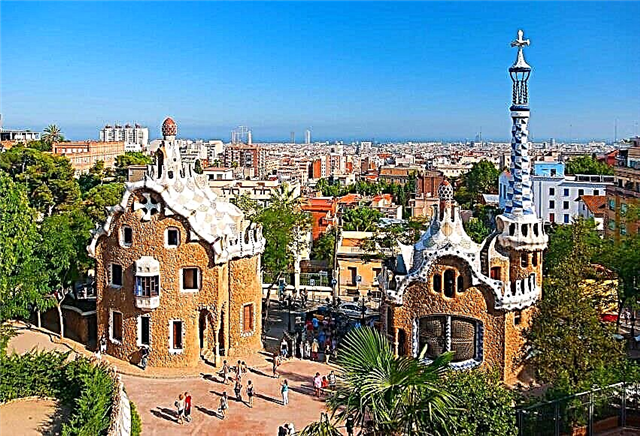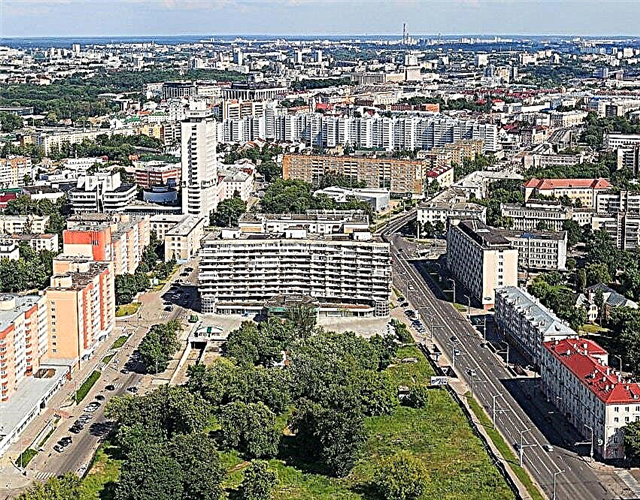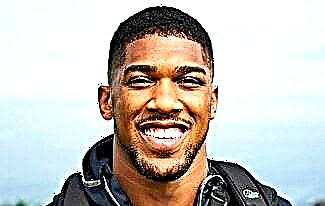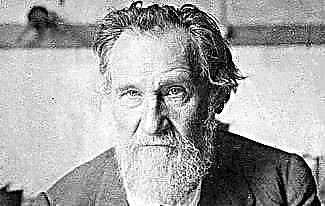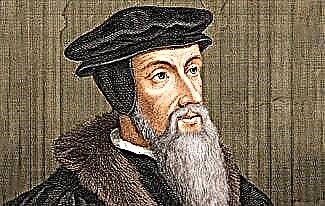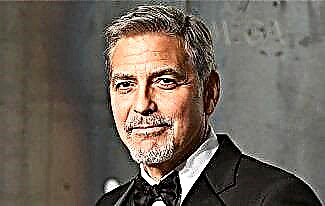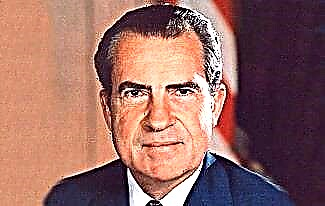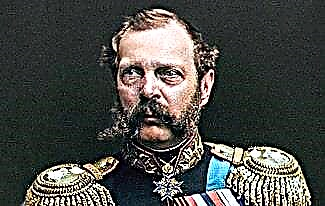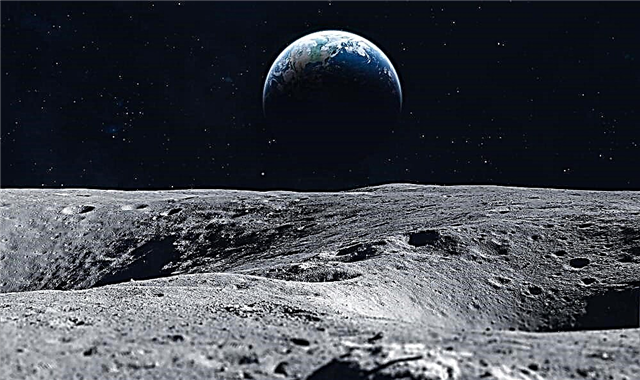December 31, 2018 marks 18 years since Vladimir Putin took over from Boris Yeltsin as acting president of Russia. Since then, Putin has served two presidential terms, served as prime minister for four years, become president again and won the fourth presidential election in his life with a record figure, gaining 76.7% of the vote.

Over the years, Russia has changed, and V.V. Putin has also changed. In 1999, Western experts, who, in their forecasts about political changes, even in the USSR, even in Russia, hit the sky with their fingers, asked the question: “Who is Mr. Putin? ” Over time, the world realized that they were dealing with a tough, intelligent and pragmatic person who prioritized the interests of the country, never forgiving or forgiving anything.
In Russia, the president was also recognized in the course of his work. The country gradually saw that a strong creative power was coming to replace Yeltsin's timelessness. The army and law enforcement agencies were strengthened. The proceeds from the export of raw materials went to the budget. The general welfare began to grow slowly.

Of course, any ruler, president, secretary general or caesar, whatever they call him, has both unpopular and downright erroneous decisions. Vladimir Putin also has such. The struggle that began with the oligarchs ended in bringing the bulk of them to obedience and allowing them to continue pumping resources out of the country. After unprecedented national unity during the annexation of Crimea, sluggish support for Donbass seemed palliative, and the pension reform carried out against the background of a record election result for many was a stab in the back.
One way or another, evaluating the president with more or less acceptable objectivity is only possible after many years. Then it will be possible to interpret the events of his life, no matter how they look now.
Well-known points of V. Putin's biography like “grew up in a family of blockades - studied judo - entered Leningrad University - entered the service in the KGB - served in intelligence in Leipzig” there is no point in reporting - everything is known from the first cadences of V. Putin. Let's try to present not so widely known facts and events of his biography.
1. When Vladimir was still a student at Leningrad State University, his family won the Zaporozhets lottery. The parents gave the car to their son. He drove very dashingly, but never got into an accident through his own fault. True, there were still troubles - once a man rushed under the car. Vladimir stopped, got out of the car and waited for the police. A pedestrian was found guilty of the incident.

The same "Zaporozhets" survived
2. In his youth, the future president was known as a great beer lover. In his own words, while studying at the university, he should have been less addicted to this drink. During his service in the GDR, Putin's favorite variety was “Radeberger”. This is a typical lager at 4.8% ABV. Soviet intelligence officers bought draft beer in 4-liter barrels and carbonated it on their own. It is clear that over the years V. Putin has reduced the consumption of beer (and any other alcohol), however, even now, “Radeberger” beer is an indispensable element of Angela Merkel's luggage during her visit to Russia.

3. In 1979, four years before his marriage to Lyudmila Shekrebneva, V. Putin was already ready to marry a girl whose name was also Lyuda. She was a medic. The wedding had already been agreed and prepared, and only at the last moment the groom decided to break off the relationship. Nobody spreads about the reasons for this act.
4. Vladimir met his future wife by chance, as a fellow traveler to the theater of Arkady Raikin. Young people met (while Lyudmila, who worked as a flight attendant, lived in Kaliningrad) for more than three years, and only then decided to get married. Moreover, the groom began the conversation in such tones that Lyudmila decided that they were parting. The marriage was concluded on July 28, 1983.

5. The career of Putin as a high-ranking official could well end in St. Petersburg. In 1996, the whole family and guests nearly burned down in a newly completed country house. The fire started from an incorrectly folded stove in the sauna. The brick house was lined with wood from the inside, so the fire spread very quickly. After making sure that everyone had time to get out into the street, the owner began to look for a suitcase in which all the family's savings were kept. Fortunately, Putin had enough composure to realize that life is more valuable than all savings, and to jump out of the house through the second-floor balcony.
6. In 1994, Putin attended an international seminar of the European Union in Hamburg. When Estonian President Lennart Meri, speaking, several times called Russia an occupying country, V. Putin got up and left the hall, slamming the door loudly. At that time, Russia's international authority was at such a level that they complained about Putin to the Russian Foreign Ministry.
7. On July 10, 2000, Konstantin Raikin celebrated his 50th birthday, playing on the stage of the Satyricon Theater a one-man show based on the play “Contrabass” by Patrick Suskind. Many people from the political and theatrical elite were present in the hall, including Vladimir Putin. At the end of the performance, the president took the stage. During his passage through the hall, only a small part of the audience stood up and applauded, and some demonstratively left the hall - before the performance, the guards searched everyone without exception, and many were unhappy with this. However, the president, awarding the actor with the order, made such a warm speech that the whole audience greeted its end with a standing ovation.

V. Putin and K. Raikin
8. Vladimir Putin is very fond of dogs. The first dog in the family back in the 1990s was a shepherd named Malysh, who died under the wheels of a car in the country. As president from 2000 to 2014, he was accompanied by the Labrador Koni. This dog was presented to Putin by Sergei Shoigu, who worked as the head of the Ministry of Emergencies. Horses have become one of the most famous dogs in the world. She died of old age. Since 2010 Koni's company has been accompanied by a Bulgarian Shepherd Dog Buffy, a gift from the Bulgarian Prime Minister. Initially, the dog's name was Yorko (in Bulgarian “God of War”), but V. Putin did not like the name. The new one was chosen at an all-Russian competition. The variant of 5-year-old Muscovite Dima Sokolov won. Horses and Buffy got along well, although at first the younger comrade pretty much tormented Koni with endless attempts to play. In 2102, the Japanese delegation presented Vladimir Vladimirovich with an Akita Inu named Yume for his help in eliminating the consequences of the tsunami. Before the parting of the Putin spouses, they had a toy poodle, which, apparently, the ex-wife of the president took with her. And in 2017, the President of Turkmenistan presented his Russian counterpart with an alabai named Verny.

9.From May 1997 to March 1998, Vladimir Putin worked as head of the Main Control Directorate of President Yeltsin's Administration. The results of nine months of work: the resignation of the Minister of Defense Marshal Igor Sergeyev (it seems that the roots of the return of Crimea and the victory in Syria lie somewhere here) and a strict ban on Japanese fishermen, yes, and what a sin, their Russian colleagues, barbaric way to catch the precious sockeye salmon. Since then, no one has heard of attempts at mass poaching of this fish in the territorial waters of Russia.
10. Before the presidential elections in 2000, the journalists of NTV and Novaya Gazeta, in search of compromising evidence against Vladimir Putin, tried to revive the report of Marina Salie. A convinced democrat (she was outwardly similar to Valeria Novodvorskaya) Salye in the early 1990s got hold of a bundle of documents on the work of the Committee for Foreign Economic Relations of the City Council of St. Petersburg. The committee was headed by Putin. With the help of these documents, at first they tried to prove multimillion dollar embezzlement - it did not work out. The transactions were carried out on a barter basis, and everything there always looks suspicious. For some, the price may look overpriced, for others, understated, and at the same time both parties are satisfied. When the embezzlement did not grow together, they began to find fault with the procedures: were there licenses, and if there were, were they correct, and if correct, then to whom exactly were they issued, etc. Putin personally and directly said that there really were problems with the licenses, but under the legislation of the time, he did not commit any crimes - licenses were issued in Moscow. Food was supplied to St. Petersburg through barter, and there was no time to wait for licenses: Salye and her colleagues had just adopted a decree on the guaranteed supply of cards to the city residents.

Marina Salie. Her revelations failed
11. V.V. Putin learned how to ride horses at a mature age. It was only when he became president that he could learn to ride. The Novo-Ogaryovo residence has a decent stable, horses in which appeared as gifts from foreign leaders even under Boris Yeltsin. He did not favor horses, but his successor showed good abilities.

12. At the age of almost 60, V. Putin started playing hockey. On his initiative, an amateur night hockey league (NHL, but not at all analogous to the overseas league) was created. The President regularly takes part in NHL gala matches traditionally held in Sochi.

Real men play hockey ...
13. Vladimir Putin is valued about a quarter less than Dmitry Medvedev. At least in philately. A gift set of stamps issued for Medvedev's inauguration is estimated at 325,000 rubles, while a similar set issued for Putin's inauguration as president costs about 250,000 rubles. In total, two stamps dedicated to Putin have been issued in mass circulation in Russia. Both were timed to coincide with his inauguration. The portrait did not fit on them. Some other Russian stamps contain quotes from the president's statements, but, again, without his portraits. Stamps with images of the Russian president were issued in Uzbekistan, Slovenia, Slovakia, North Korea, Azerbaijan, Liberia and Moldova. Putin, according to some information, collects stamps himself, but only the head of Russian philatelists V. Sinegubov mentioned this.


14. Vladimir Putin does not have a mobile phone; as press secretary Dmitry Peskov said, he has enough government communication phones. Perhaps the Russian special services are missing out on a serious opportunity for trolling their Western counterparts: a hundred smartphones registered in the name of the president could have required serious expenses from competing structures for wiretapping and decryption equipment. Russia already has experience in producing mobile devices “for Putin”. In 2015, one of the Russian jewelry firms released 999 copies of the Apple Watch Epocha Putin. The ensemble of watch design included V.'s signature. The device was sold for 197,000 rubles.

15. His explosive career growth - in three years he went from the deputy head of the department of the Presidential Administration to the actual presidency - Putin evaluates very objectively. According to him, in the 1990s, the Moscow political elite was actively engaged in self-destruction. In fierce undercover battles at the bedside of Boris Yeltsin, in the wars of compromising evidence and slander, the careers of hundreds of politicians ended. For example, in 1992-1999, 5 prime ministers, 40 deputy prime ministers, more than 200 ordinary ministers were dismissed, and the number of layoffs in the offices of structures like the Presidential Administration or the Security Council is in the hundreds. Putin involuntarily had to “drag” the “Leningrad” people into power - he simply had no one to rely on, there was no personnel reserve in the leadership. Moreover, the dismissed officials were either corrupt or hated the authorities in any format without their participation.
16. The opposition, which would sometimes be called a much more capacious word, often compares the number of billionaires in the “holy 90s” - then there were 4 of them, and under Putin, who produced more than 100 billionaires (all, of course, members of the cooperative “ Lake"). Billionaires are certainly emerging in Russia quickly. But there are also such indicators: during Putin's stay in power, the GDP grew by 82% (yes, it was not possible to double it after the 2008 crisis and 2014 sanctions). And the average salary has grown 5 times, the pension has grown 10 times.
17. The size of Russia's gold and foreign exchange reserves increased several times and reached 466 billion dollars. Many economists, even patriotic ones, believe that it is not worth supporting the US economy in this way. They seem to forget that gold reserves are simply resources accumulated in case of war.
18. The weakness of his opposition also indirectly testifies to the approval of V. Putin's policy. For all 18 years of respect, but not fear, should deserve unless actions against the monetization of benefits in 2005, and speeches against the alleged falsification of elections on Bolotnaya Square in 2012. Compared to the Universiade in Kazan, the APEC summit, the Sochi Olympics or the 2016 FIFA World Cup, these events look rather pale. Especially when you consider that the so-called non-systemic opposition used any, even indirect, chance to discredit the country's aspiration to adequately host world forums.

Bolotnaya protests were massive, but unsuccessful
19. The participation of V. Putin in Larry Keig's program shortly after the sinking of the Kursk submarine with the entire crew is evidence of how difficult it is to convey an uncomplicated idea to a mass audience. To the question of the American TV presenter: "What happened to the Kursk submarine?" Putin with a very crooked smile answered: "She drowned." Americans took the direct response for granted. In Russia, a howl arose about the mockery of the fallen sailors and their relatives. The President, obviously, meant that he would not comment on the official version of the explosion in the torpedo compartment.

Larry King's Putin
20. Vladimir Putin has only two state awards, and one is more mysterious than the other. In 1988, that is, while serving in the KGB in the GDR, he was awarded the Order of the Badge of Honor. The order, frankly speaking, for a military officer, is somewhat unusual. They were usually awarded for peaceful merits: high performance in work, increased labor productivity, the introduction of advanced experience, etc. There is an increase in defense capability in the statute of the order, but already in 7th place. The order bearer himself in an interview, speaking about work in Germany, mentioned that he was appreciated and twice promoted in position (for one foreign business trip, KGB officers were usually promoted once). Vladimir Vladimirovich himself does not speak about the order, and the correspondents do not ask. Meanwhile, it can be assumed that he was involved in obtaining any important industrial secrets - that is the advanced experience, and the increase in labor productivity, and high performance in the economy. Perhaps Putin's recollection of a colleague who extracted technology that allowed the USSR to save billions of dollars, but was never introduced into production, refers to himself? The second award is the Order of Honor. Received in March 1996 for great services and contribution to the arrangement of the border with the Baltic states. Of course, there was a mess in the 1990s, but the employees of the mayor's office were not supposed to be engaged in the arrangement of the border?

